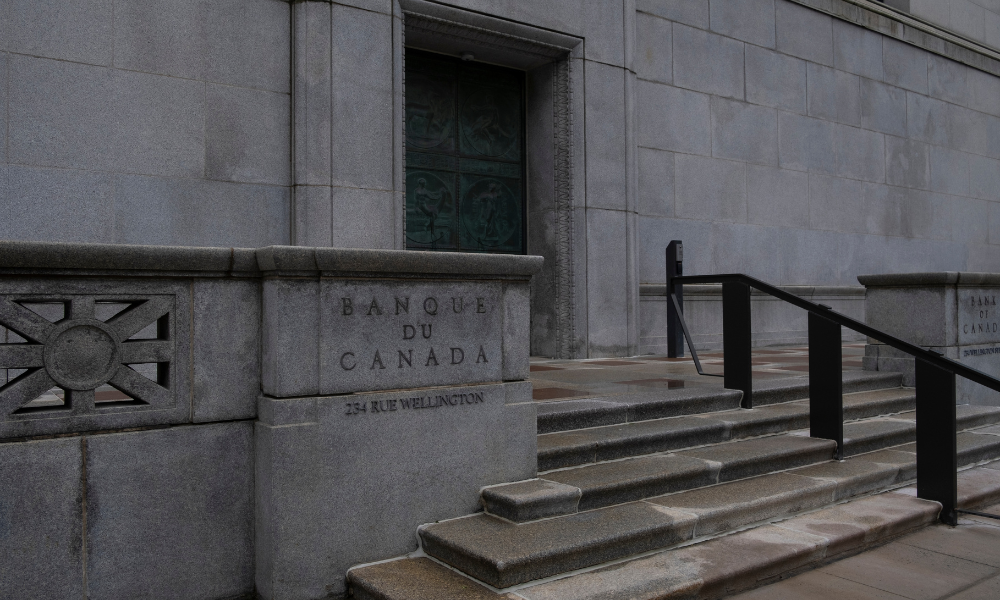Startup founder explains his niche in estate planning, while chief product officer outlines the promise of AI for advisors expected to do more

Randy Frisch found an interstitial space between the formal and informal parts of a will. Frisch had recently completed the sale of his first tech startup in marketing content. After the sale, he bought his wife a gift to say thank you for all her support. It was a piece of jewellery, which came with an appraisal document that he might normally just throw in a drawer. Having just updated his will, though, Frisch decided to ask his lawyer about ensuring the gift, as well as other valuables, were named in his will.
“When I reached out to my lawyer to ask why she explained to me that your will becomes a public document upon death. So, you don't want everyone to know that you had however many nice watches or jewellery pieces and things of that,” Frisch says. “So people just keep a letter of wishes. She said, why don't you just go download a PDF template and write out those and make sure no one someone knows where to find it. And that just felt so antiquated to me.”
Frisch subsequently founded a new startup, an AI driven platform called Trusty. The platform offers individuals a place to store and plan for all the sentimental items and high value non-financial assets that someone might accumulate in their lifetime. Art, jewellery, vehicles, and the small pieces that heirs value hugely but outsiders may not even notice. All those pieces can be noted within an app and information can be accessed by heirs, estate advisors, financial advisors, and any other stakeholder within a client’s estate planning needs.
The AI application in the tool allows for more rapid uploading and annotation of specific assets. It works as a time saver to extrapolate key information and help assign monetary values to those assets. Beyond the AI side, however, Frisch highlights the functionality of a single space to store information about how all these items are given to the next generation. Individuals can even record video messages to their heirs, explaining why they decided to give one of them a specific work of art or vehicle that they might have shown a sentimental attachment to. It’s the sort of AI and tech tool, aimed at creating efficiency in a specific area of the estate planning process, that peaked Dave Nugent’s interest.
Nugent is Chief Product Officer at Purpose Unlimited. In his work identifying products and technologies that can help financial advisors, he sees a tool like Trusty as adding value. Nugent emphasized that because advisors are being asked to do more under their mandate of providing “holistic wealth management,” tools that make certain services easier to provide can help immensely.
“Clients want advisors to tell them that they're going to be okay at the beginning, the middle of the end of their life. So estate planning is just part of that whole package,” Nugent says. “When I think about estate planning, there's a lot of kind of financial and tax planning that complements the legal side of things. So the advisors really being tasked on, you know, how do we optimize? You know, things going, you know, to to your loved ones. Obviously, the lawyers are the ones that are going to go draft everything. I think the part where Trusty comes in is how you actually get everything into one spot.”
Financial advisors working on clients’ estate plans must be careful not to stray into legal territory, which is why Nugent sees AI platforms like this so positively. He believes that in focusing on niches that prioritize adding efficiency into the process and managing areas that are explicitly not covered by estate lawyers, advisors can add value while staying onside.
Nugent notes that advisors still need to take a sceptical view of new tools as they emerge, though. Human oversight is key and blind trust in the shiny object can prove dangerous. Nugent suggests tht advisors work at mastering skills like AI prompt writing to ensure that the new tools they’re leaning on are achieving what they want. An advisor’s goal, he argues, should be to eliminate friction for clients where possible and tech tools can help with that.
“The challenge for advisors is, how do you serve more clients in a personal way,” Nugent says. “There's a finite amount of time an advisor has in their day in order to be able to do these things. You know, with technology moving as fast as it is, the ability to personalize experiences for clients is becoming easier and easier to do, and the expectation of the client is elevating because they're seeing that happen in other parts of their life.”



